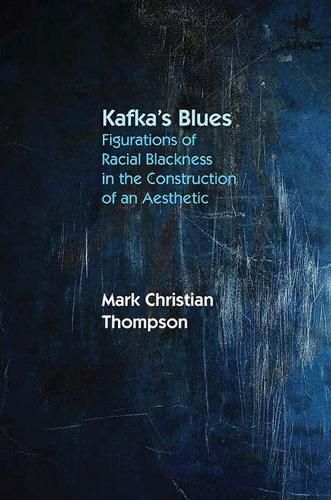Readings Newsletter
Become a Readings Member to make your shopping experience even easier.
Sign in or sign up for free!
You’re not far away from qualifying for FREE standard shipping within Australia
You’ve qualified for FREE standard shipping within Australia
The cart is loading…






Kafka’s Blues proves the startling thesis that many of Kafka’s major works engage in a coherent, sustained meditation on racial transformation from white European into what Kafka refers to as the Negro (a term he used in English). Indeed, this bookdemonstrates that cultural assimilation and bodily transformation in Kafka’s work are impossible without passage through a state of being Negro. Kafka represents this passage in various ways-from reflections on New World slavery and black music toevolutionary theory, biblical allusion, and aesthetic primitivism-each grounded in a concept of writing that is linked to the perceived congenital musicality of the Negro, and which is bound to his wider conception of aesthetic production. Mark ChristianThompson offers new close readings of canonical texts and undervalued letters and diary entries set in the context of the afterlife of New World slavery and in Czech and German popular culture.
$9.00 standard shipping within Australia
FREE standard shipping within Australia for orders over $100.00
Express & International shipping calculated at checkout
Kafka’s Blues proves the startling thesis that many of Kafka’s major works engage in a coherent, sustained meditation on racial transformation from white European into what Kafka refers to as the Negro (a term he used in English). Indeed, this bookdemonstrates that cultural assimilation and bodily transformation in Kafka’s work are impossible without passage through a state of being Negro. Kafka represents this passage in various ways-from reflections on New World slavery and black music toevolutionary theory, biblical allusion, and aesthetic primitivism-each grounded in a concept of writing that is linked to the perceived congenital musicality of the Negro, and which is bound to his wider conception of aesthetic production. Mark ChristianThompson offers new close readings of canonical texts and undervalued letters and diary entries set in the context of the afterlife of New World slavery and in Czech and German popular culture.